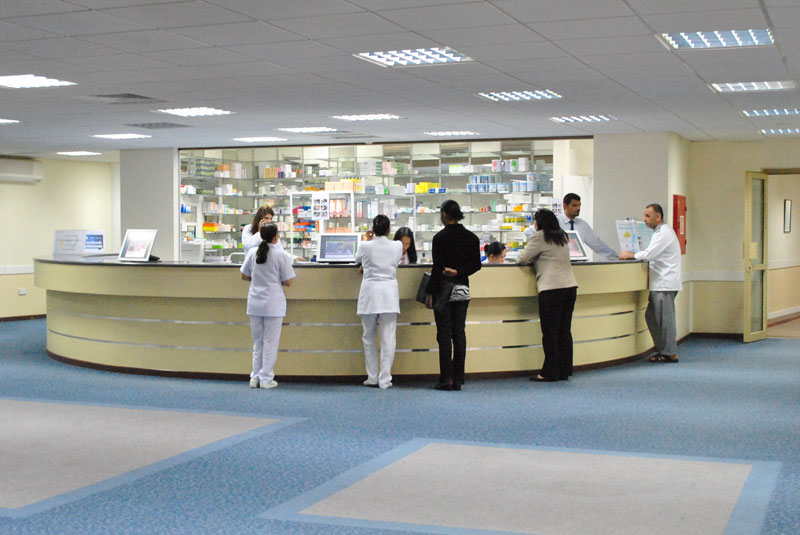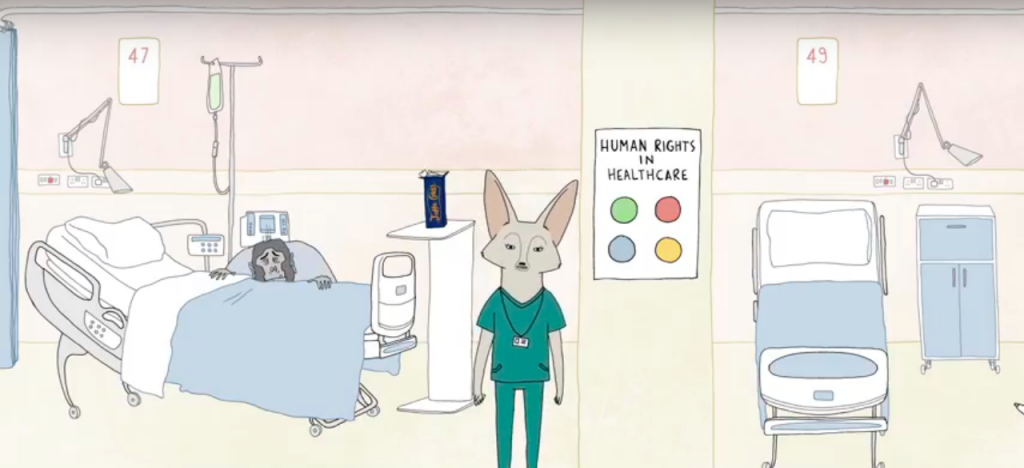The cost of a prescription in England has risen again, with campaigners warning that the increase could put millions of NHS patients ‘at risk’. With the cost of a prescription now at £9, is it time to stop the struggle to afford healthcare and scrap the charges altogether?
33-year-old Rowena Skinner from London has lived with asthma since childhood, and in 2018 she was diagnosed with an autoimmune condition. She uses inhalers and tablets to manager her asthma and takes 2 tablets a day for her condition.
Working in recruitment, Rowena used to pay for all of her prescriptions.
“I struggled to pay for my prescriptions for about a year. It’s really important to manage asthma well, and medication is a key part of that. I tried to prioritise it but there were a few times that I had to delay picking up my prescription and my asthma got worse as a result,” she says.
“I also have food allergies, so I’d have to choose between buying the more expensive food that wouldn’t make me ill and affording my medication.”
Speaking to RightsInfo, 21-year-old student Sophie Davies also struggled to pay for the medication she needed:
“Due to my mental health condition, my GP would only prescribe me a week’s worth of prescriptions at a time. Thankfully I was able to afford a pre-payment certificate to remove the ongoing costs, but if that wasn’t an option I wouldn’t be able to afford the medication I need to live.”
As of the start of this week, the price of NHS prescriptions in England has risen to £9 from £8.80, following another government increase last year from £8.60 to £8.80.
There will be no change in price for three-month prescription prepayment certificates (PPC), an initiative where customers pay a set price, which stays at £29.10, or the 12-month version, which will continue at £104.
Health minister Steve Brine told parliament in a written statement that the increased charges will contribute to the £22bn in efficiency savings that the government expects the NHS to make by 2020.
Speaking to i, Matina Loizou, senior policy and campaigns adviser at Parkinson’s UK makes the point that the government “has pushed up prescription costs every year, bar one, since 1979,” and raises the question, “haven’t people with long-term conditions paid enough for essential medication?”
Paying For Prescriptions – What’s It All About?

Although the NHS, was set up to provide a completely free health service for everyone, a growing drugs bill prompted the introduction of prescription charges in 1952.
The plans were first put forward by the Attlee government in 1951, which led to the resignation of a string of ministers, including the “father” of the NHS, Aneurin Bevan. Following Labour’s election defeat in October 1952, a Conservative government set the charge at one shilling per prescription form.
In 1965, under Harold Wilson, Labour abolished prescription charges which caused the NHS drugs bill to soar, as many low-cost items that patients had previously bought for themselves were increasingly being prescribed for free.
June 1968 the Labour government relented and restored prescription charges at a higher rate of two shillings and sixpence per item. They also introduced a range of exemptions for old and young people, people on benefits, and people with chronic diseases such as diabetes.
Decades on and a number of chronic conditions were still not exempt, including cancer. Many organisations, including Macmillian Cancer Support, campaigned for the abolition of prescription charges in England “so that no one is in the position where they can’t afford the treatment prescribed by their doctor or health professional.”
The campaign was somewhat successful and in 2009 cancer patients in England were made exempt from prescription charges.
A Success For Some, But Not A Solution For All
 Image Credit: Theihb/Wikimedia
Image Credit: Theihb/Wikimedia
Many people with long term illnesses continue to struggle to afford their medication, though, with their health issue not making them eligible for an exemption and their financial position leaving them unable to afford the upfront cost of a PPC.
In February, a report by Asthma UK claimed that more than a million people in England are at risk of having a life-threatening asthma attack because they are struggling to pay for their asthma prescriptions.
The leading charity revealed that just over three-quarters of the 2.3 million people in England with asthma who have to pay for prescriptions struggle to afford them.
We cannot stand by while working-age people in England are penalised for their ill health.
Lloyd Tingley, Senior Policy and Campaigns Adviser at Parkinson’s UK and Chair of the Prescription Charges Coalition
In 2017, a report from the Prescription Charges Coalition, a group of more than 40 bodies calling for patients with long-term conditions to be exempt from prescription charges, found that a third of people in England with a long term condition had not collected a prescription because of the cost.
The British Medical Association (BMA) has also long called for a “fundamental review” of the prescription charges system and exemption categories, describing it as “outdated and iniquitous”.
In its response to the Department of Health’s 2009 review of prescription charges for those with long-term conditions, the BMA called on the Government to “abolish prescription charges in England altogether.”
Prescription Costs: Now I’m Ready To Rise Again
 Image Credit: torange.biz
Image Credit: torange.biz
Commenting on the most recent prescription charge rise in England, Lloyd Tingley, Senior Policy and Campaigns Adviser at Parkinson’s UK and Chair of the Prescription Charges Coalition, told RightsInfo he found it “incredibly frustrating that the government continues to plough ahead with increasing prescription charges year on year,” and pointed to an ongoing failure to address the “devastating impact” on people with long-term conditions.
He continued: “No diagnosis should put people out of pocket, but sadly we know that people don’t take their medication as prescribed because they cannot afford to, making their condition worse and, in some cases, leading to hospital treatment.
“To add insult to injury, since 2010, the prescription charge has risen by 26 per cent, compared to a rise in average earnings of 16 per cent over the same period.
“The government urgently needs to review the outdated exemption list, to include all long-term conditions. We cannot stand by while working-age people in England are penalised for their ill health.”
Meanwhile, Dr Samantha Walker, Director of Research and Policy at Asthma UK, called the further increase “another blow to people with asthma” which could put more than a million “at risk of a life-threatening asthma attack.”
“It is utterly unfair that millions of people with asthma are paying just to breathe,” she added, “especially when those with some other long-term conditions get their prescriptions for free. Asthma is often a life-long condition and it is life-threatening so people with asthma should get their prescriptions for free to help them stay well.”
What About Our Rights?
 A still from our animation on human rights in healthcare. View >
A still from our animation on human rights in healthcare. View >
The right to health is internationally recognised as a fundamental human right. Though it does not guarantee people free healthcare access, in 1946 the WHO stated in its constitution that “the enjoyment of the highest attainable standard of health is one of the fundamental rights of every human being without distinction of race, religion, political belief, economic or social condition.”
It obliges states to give equal access to the right to health for all persons. This right was also included in the 1948 Universal Declaration of Human Rights and in the 1966 International Covenant on Economic, Social and Cultural Rights.
The United Nation’s Committee on Economic, Social, and Cultural Rights has also made clear that socio-economic status can be seen as a ground of discrimination when it comes to healthcare. If a certain section of society cannot access medication due to economic inequality, should action be taken?
“Individuals and groups of individuals must not be arbitrarily treated on account of belonging to a certain economic or social group or strata within society,” the committee have stated, adding that “a person’s social and economic situation when living in poverty or being homeless may result in pervasive discrimination, stigmatization and negative stereotyping which can lead to the refusal of, or unequal access to, the same quality of education and health care as others.”
Does Getting Rid Of Paid Prescriptions Work?
 The Welsh Assembly Building in Cardiff. Credit: muffinn/Flickr
The Welsh Assembly Building in Cardiff. Credit: muffinn/Flickr
Since 2011, England has been the only UK country still charging patients for NHS prescriptions, with people in Scotland, Wales and Northern Ireland continuing to get them for free.
Appleby also points to an estimate that gross revenue from NHS prescription charges was £400m in 2012, representing just 0.4 per cent of total NHS expenditure in England.
Patients shouldn’t have to make choices which involve rationing their medicines
Sandra Gidley, chair of the Royal Pharmaceutical Society English Pharmacy Board
Meanwhile, three years after the abolition of prescription charges in Wales, the Welsh government published a report on the impact of the changes. The analysis suggested that there had been no noticeable increase in the number or cost of prescriptions dispensed as a result of the change.
The report also claimed that free prescriptions eliminated the bureaucracy required to manage the system by removing the need for pharmacists to establish the exemption status of patients.
As the debate over whether England should join the rest of the UK in abolishing prescription charges rumbles on, and those charges continue to increase, “every day pharmacists are asked by patients who are unable to afford all the items [on] their prescription, which ones they could ‘do without’,” says Sandra Gidley, chair of the Royal Pharmaceutical Society English Pharmacy Board.
She continues: “Patients shouldn’t have to make choices which involve rationing their medicines. No one should be faced with a financial barrier to getting the medicines they need.”







